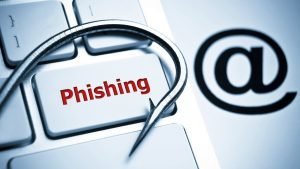
Email Money Scams You Should Know — And Stay Away From

While email has grown to be one of the most convenient sources of information, it has also become a venue where thieves thrive. With this, it is important to know how a simple email can make you lose thousands in just one go. Here are some online scams you should be aware of.
Fake Sender Email Address

Tricksters can find it very easy to fake how the sender appears in your email. For example, an email can appear to be from PayPal, when actually it is from a random email address that is not connected to PayPal in any way. This can be for all banking accounts or anything used to transact online, as well.
PayPal warns against these fishy senders. Some email clients will make it hard to see the real name. If, however, you mouse over the friendly name or click on reply, you should be able to see the full email address of the actual sender. Some con men can fake the entire name so that it would look like it came from a legitimate sender so be extra careful. It is always important to take a look at the entire email.
[su_quote cite=”Stewart Kirkpatrick” class=”cust-pagination”]“Hoaxes use weaknesses in human behavior to ensure they are replicated and distributed. In other words, hoaxes prey on the Human Operating System.”[/su_quote]
Survey Scam
This has become one of the most common email scams that look innocent enough to fool even reasonably careful people. When you have expressed interest in social issues such as possible warfare with North Korea or global warming, you get sent a survey that requests some minimal input. Unless you have specifically requested to be on a sending list, all you are getting is spam.
When you click on a link to take the survey, malicious spyware is surreptitiously installed on your computer. This is when cybercriminals can spy on every move as they collect social media passwords, banking information and basically everything you store online. The next minute, you might see thousands of dollars charged on your credit card corresponding to purchases that you never made.
Phishing

Phishing is where digital thieves can lure you to divulge your password into what appears to be reliable web pages. These emails and pages resemble true companies such as PayPal, eBay and banking websites. They try to frighten and entice you into visiting a web page where you would have to enter your ID and password. Some would even claim that there is an urgent need to confirm your identity with claims that your account has been hacked.
When you click on the link, you will be redirected to a fake website. When you enter your ID and password on the real website, this is sent to the cybercriminals and they can use this information to log on your real accounts. To avoid this, make sure that the link begins with “https.” Phishing links usually just have an “http” and no “s.”
Mystery Shopper Scam

This scam has several variations, all of which are designed to steal your money, information and a lot more. This works when you are enticed to a work from home opportunity and you are promised large income for easy work as a mystery shopper. However, instead of being paid to shop, you end up getting swindled. It is either you have to pay upfront costs to cover training materials or you receive a fraudulent check where you provide the false company with your address and information.
If you did not apply for a job, you will not be offered one. They do not just fall out of nowhere. If you are being asked for upfront costs, you are very likely to be scammed.
Nigerian Scam
You might have received an email from a member of a wealthy Nigerian family or from a woman in Africa who claims that her husband has died and that she wanted to leave millions of dollars for charitable causes. There are many variations of this scam, but in every form, the scammer promises obscenely large payments for very menial tasks.
The scammer will try to appeal to your emotions so that they can swindle you. They will promise you heaven and earth, while all you have to do is cover the legal and other fees that are needed to release the money. The more willing you appear to pay, the more that they will try to suck money out of your wallet. You will never get anything — because there is not any.
With a lot of scams nowadays, it is important to be very careful. These are just a few of the scams circling the Internet now and tricksters are getting pretty clever with their strategies. Do you know of any other email scams? Share with us your thoughts in the comments below!
More in Financial Adviser
-
Turn Your Rental Space Into Your Home With These Effective Tips
Get to Know Your Boundaries Before you start planning your mini-makeover, it is crucial to understand the limitations set by your...
December 14, 2023 -
Brewing Controversy: Unraveling the Bud Light Boycott
In a world fueled by opinions, the recent Bud Light boycott has stirred quite the commotion. It’s not your typical tale...
December 7, 2023 -
How LVMH Became a $500 Billion Luxury Empire
LVMH Moët Hennessy Louis Vuitton is a name synonymous with luxury and opulence. The brand has crafted not just products but...
December 2, 2023 -
Women Spend 20% More Per Year on Out-of-Pocket Health Costs
A recent report from Deloitte has brought to light a concerning issue in the world of healthcare – women spend a...
November 24, 2023 -
How Sound Baths Can Soothe Your Mind, Body and Soul
Have you ever been so caught up in a song that you felt the world melt away? Music, in its many...
November 18, 2023 -
What to Know Before Rebalancing Your Investment Portfolio
Managing an investment portfolio is akin to steering a ship through ever-changing waters. Periodic adjustments are necessary to ensure you stay...
November 11, 2023 -
Jeff Bezos and Fiancée Lauren Sánchez’s Extravagant $500 Million Superyacht
Get ready to set sail on a journey into the opulent world of Amazon founder Jeff Bezos and his fiancée Lauren...
October 31, 2023 -
How to File Your Taxes: A Comprehensive Guide
Filing your taxes can be daunting, but with the right knowledge and preparation, it doesn’t have to be overwhelming. Taxes are...
October 26, 2023 -
Make Your Kids Mini Master Chefs | Here’s How
For many of us, the kitchen is the heart of our homes – a place where magic happens, one dish at...
October 19, 2023















You must be logged in to post a comment Login